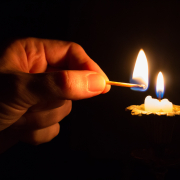How Does Grief Affect a Child
 Just like adults, children react to death in various ways. This could be influenced by a myriad of factors such as their age, gender, relationship with the one who died, family circumstances, personality, development stage, amount of support given to them, earlier experiences, and how the others around them are grieving.
Just like adults, children react to death in various ways. This could be influenced by a myriad of factors such as their age, gender, relationship with the one who died, family circumstances, personality, development stage, amount of support given to them, earlier experiences, and how the others around them are grieving.
Always remember that grief is a natural response to a loss, and losing the person you love is complicated. It is even harder for kids who don’t have the emotional maturity, depth of experience, and ingrained wisdom to handle such trying times. Grief has no time table, so you must always be ready to reassure your children and give them comfort.
Grief in Small Children
Babies and toddlers may not be able to speak, but they are also intuitive human beings that can feel the suffering of their parents. They may not be capable of saying they missed their grandma, who passed away, but they somehow know when their parents are in turmoil. They can pick up on your distress and anxiety so that they may remain pensive, serious, and even anxious.
When your babies and young toddler cry and seek attention, don’t forget to give them lots of cuddles. They also sense the loss and may see to want to be with the one who is now gone. They can be irritable, too, with more crying bouts. Some tend to be more clingy because they feel insecure. Don’t be surprised if your young kids lose weight during the grieving process.
To help your very young kids, try to stick to your routine. When possible, continue to engage in healthy activities. Give more hugs and cuddles; it is okay for you to cry together. You must be mindful of your tone and demeanor when you are around your kids. Speak gently and calmly so they won’t feel insecure. It will also help if you give them a new cuddle toy or special blanket to keep them calm.
Grieving Preschoolers
Preschool kids may be busy playing and continuing with their daily routines. However, this doesn’t mean they are not aware that someone they loved has passed away. They know that you are planning a funeral. This age is also the imaginative age, so some may inadvertently believe that the person who is gone will come back, just the way they see it in cartoons. Denial is totally normal, so you may need to prepare some simple explanations.
Kids who are very closed to the deceased will feel insecure and frightened. It is usual for them to cry and to ask questions about what happened. It is not uncommon to have regression in some of their progress, like wetting the bed, wanting a pacifier, or being more clingy, because the loss disrupted their routine. You must be extra patient to help them deal with these dark emotions.
Assure your preschoolers that they are safe. You can begin explaining how death is a part of life by using nature-based examples like the changing seasons and how plants whither. Assuage their fears with lots of hugs and kisses. Encourage them to play with other kids to help them cope. Some also like to engage in the arts to ease the trauma.
How Primary School Kids Handle Loss
Primary school kids are still in the processing of understanding life and loss. Be prepared to answer questions because when they are mourning, they may feel confused. They may be curious about what happens to the body after all the funeral songs are done, and the body is laid to rest underground. In the same token, they may ask you to explain the cremation process.
It is normal for them to ask blunt questions. Be very honest when you give them replies. There is no need to sugarcoat the situation, but you must also be sensitive to your choice of words. The younger ones may hope for the deceased to come back. But the bigger kids from 9 to 12 years old understand that death is final.
All primary school-aged children also react to how the adults around them are grieving. If they express interest, you can let them help plan the funeral. It would be best if you made time to sit with these children to process what happened to your family. Now is the time to stick together. Bond with your primary schoolers so you can make them feel secure.
Adolescents in Mourning
By the teen years, they know that death is final, and they realize they have to accept this death. The reactions are varied depending on the relationship with the deceased. Sometimes, how they respond fluctuates to the early age bracket while others have an adult-like response. This is based on the personality and coping mechanism of the adolescent. Some may offer to help plan and funeral and give eulogies.
It is typical for teens to find the intensity of their emotions to be overwhelming and scary. At this stage, it is not unusual for hem to seek comfort and solace with friends. Some pretend that they are okay, shut away from their feelings, and refuse to talk about it. Sometimes, it becomes very unbearable that it manifests in their schoolwork.
You have to be there to assuage your teens as they are struggling continually. They can have other intense reactions like anger, denial, and fear apart from sadness. When teens lose a parent, it is not uncommon for them to engage in risky behavior such as doing drugs and alcohol. They want to assert that they have control. Depending on the severity, some counseling may be necessary. The important thing is to let your teens know that you are ready to give support anytime.
Final Word
Grieving kids and teens will always need love, attention, and care, especially during trying times like the death of a loved one. Provide reassurance and support to lessen their fears and anxieties. Prepare to handle bouts of sadness. It may resurface later even when the death is long over. It is natural for grief to ebb and flow. They feel it even more during life milestones. But death is indeed a natural part of life, and when your kids experience the painful loss of a loved one, take comfort in knowing that it will be a defining moment that helps them grow.





